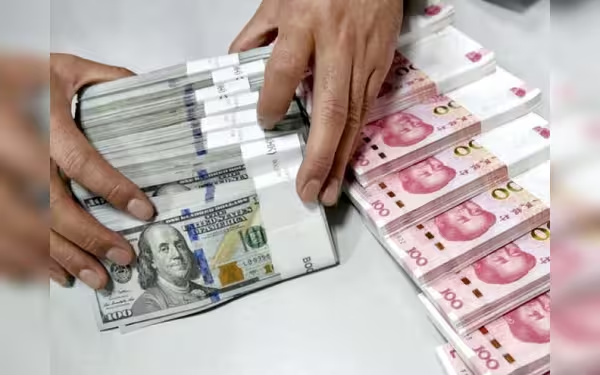Saturday, October 5, 2024 10:30 PM
China Eases Foreign Exchange Controls for Gwadar Trade
- China seeks to ease foreign exchange controls in Gwadar.
- Renminbi proposed for transactions in Gwadar Free Zone.
- Potential boost for Chinese investment in Pakistan.
 Image Credits: tribune.com.pk
Image Credits: tribune.com.pkChina aims to ease foreign exchange controls in Gwadar, enhancing trade relations and attracting investment in the region.
In recent developments, China has expressed a keen interest in easing foreign exchange controls, particularly in the context of its economic activities in Pakistan. This move is seen as a significant step towards enhancing trade relations between the two countries, especially in the Gwadar Free Zone, which is a crucial part of the China-Pakistan Economic Corridor (CPEC). The Gwadar Free Zone is designed to attract foreign investment and promote export-oriented businesses, making it a focal point for economic growth in the region.
According to reports, Chinese firms are actively seeking exemptions from the Foreign Exchange Regulation Act of 1947. This act currently imposes certain restrictions on currency transactions, which can complicate international trade. The proposal involves using the Renminbi (RMB), China's official currency, for transactions within the Gwadar Free Zone. This pilot project aims to facilitate smoother trade operations for export-oriented enterprises, allowing them to conduct business more efficiently.
The China Overseas Ports Holding Company (COPHC), which plays a pivotal role in managing the Gwadar port, has reportedly approached the State Bank of Pakistan (SBP) with this request. By targeting export-oriented enterprises, the initiative seeks to streamline financial processes and reduce the burden of currency exchange, which can often lead to delays and increased costs for businesses.
This potential shift in currency regulation could have far-reaching implications for trade dynamics in the region. If successful, it may encourage more Chinese companies to invest in Pakistan, thereby boosting local economies and creating job opportunities. Furthermore, it could set a precedent for other foreign investors, showcasing Pakistan as a favorable destination for international business.
The move to seek an exemption from foreign exchange controls reflects China's commitment to strengthening its economic ties with Pakistan. As both nations continue to explore avenues for collaboration, the success of this pilot project could pave the way for a more integrated and prosperous economic future. It is essential for stakeholders to monitor these developments closely, as they may significantly influence the landscape of trade and investment in the region.













